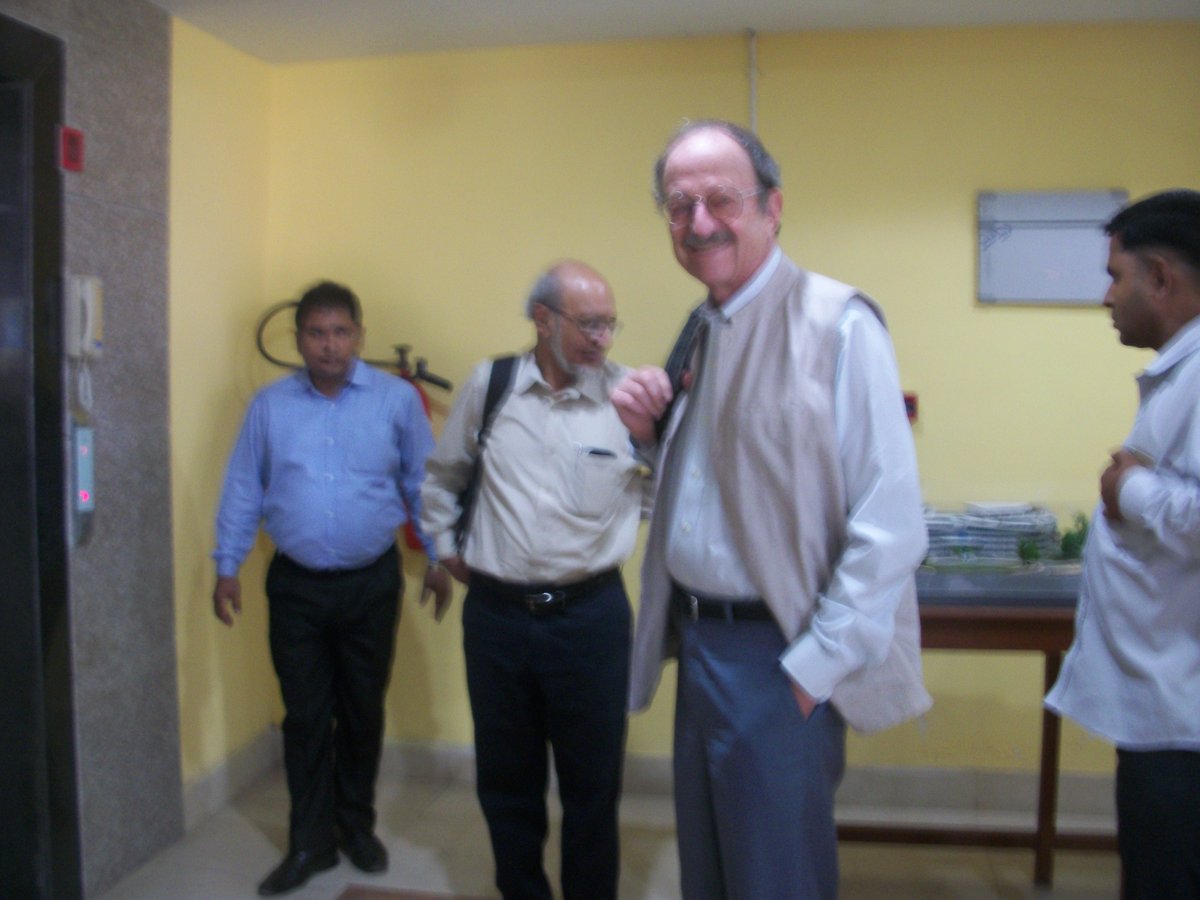Featured Science
Kalyani, a small town about 50 Km from Kolkata was suddenly awakened to police sirens on Nobember 11, 2018. No there was no politician travelling through town. Nobel laureate Professor Harold Varmus was visiting the National Institute of Biomedical Genomics in Kalyani.
The renowned cancer researcher was there to inaugurate the Human Genome Hall, an audio visual presentation of the development of human genetics to increase public understanding of the subject.
The exhibition hall was conceived by the founder of the National Institute of Biomedical Genomics, Professor Partha Majumder. The design and execution of the exhibition was done by the National Council of Science Museums, primarily by Mr. Manash Bagchi.

As the 74 year old Nobel laureate excitedly switched on 3D models demonstrating anatomy of human genome, DNA splicing and so on, the scientists and students were waiting for his lecture on the Transformation of Cancer Research.
After walking through the visual depiction of the utilities of human genome study and audio visual quizzes, the tall Professor took to stage to glide the audience through the journey of cancer research pre-genomics and post genomics.
Warming up to the enthusiastic audience, Varmus who initially graduated in English literature because ‘science was too predictive to be adventurous’ explained how in the pre-genomics era cancer research hovered around surgery, chemotherapy and clinical oncology.
Significant advances in knowledge were derived from the Rous Sarcoma Virus which carries a cancer gene encoding an interesting enzyme. Changes of mutations in such cellular genes caused cancer which can be treated with drugs targeted against mutant proteins.
The former Director of the U.S. National Institutes of Health and later of the U.S. National Cancer Institute, dwelt upon major discoveries in cancer treatment like Imatinib (Gleevec) drug discovered in 1999 which blocked cancer causing enzymes and killed cancer cells. Several Cancers like that of pancreas, breast and lung with commonly mutated genes could subsequently be treated with enzyme inhibitors.
The modern era of cancer genetics dawned with the knowledge of multiple mutations that several kinds that cancers have and protein changes that certain cancers induce exposing them to recognition by the immune system and forming the basis of immunotherapy.
Varmus, who long ago predicted that immunotherapy was the emerging warrior to vanquish the emperor of maladies, described the advances in this treatment approach. This is today a major direction in cancer treatment which has brought the Nobel Prize for physiology to James P. Allison and Tasuku Honjo.
The Nobel laureate opined that that cancers are evolutionary systems responding to selective pressures envisioned by Darwin like random mutations, signatures left by mutagens, genetic heterogeneity, selection for fitness and drug resistance.
The post genomics era, said the Nobel Laureate has brought new learning in cancer diagnosis and treatment. These included new classification of cancer, new prognostic indicators and therapeutic targets. It has also helped us travel into the basis of drug resistance and identify mutational signatures which are indicators of mutagenic agents.
However, puzzles like the reasons behind unexpected, exclusive mutationsand patterns of mutations associated with cancers in certain lineages still remain. It is such puzzles that make science which once young Varmus did not find adventurous enough, an addiction today for him.
It was time for lunch, but questions poured in from the audience and Varmus preferred the questions to the lunch and went on quenching the thirsty students and researchers. Perhaps he was getting his much needed fix.
The current Director of the Institute, Professor Saumitra Das had welcomed Professor Varmus and the audience, and his predecessor Professor Sharmila Sengupta moved the vote-of-thanks.
Dr Archita Bhatta



